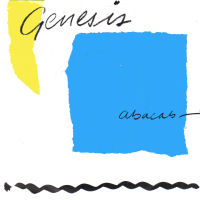| "Abacab" | ||||
|---|---|---|---|---|
 | ||||
| Single by Genesis | ||||
| from the album Abacab | ||||
| B-side | "Another Record" | |||
| Released | 14 August 1981 (UK)
| |||
| Recorded | May–June 1981 at The Farm (Surrey) | |||
| Genre | ||||
| Length | 7:02 (LP version) 4:10 (UK single edit) 3:59 (US single edit) | |||
| Label | Charisma/Phonogram (UK) Atlantic (US) | |||
| Songwriters | ||||
| Producers | ||||
| Genesis singles chronology | ||||
| ||||
"Abacab" is a song by the English rock band Genesis, released on 14 August 1981. It was produced by Genesis and distributed in the United States by Atlantic Records and Warner Music Group. [3] The song, mainly written by Mike Rutherford with Tony Banks and Phil Collins with lyrics by Rutherford, was featured on Genesis' studio album of the same name and was a top 10 hit on the British pop chart, where it peaked at No. 9. [4] The song was the second single from the album in the US, where it peaked at No. 26 on the Billboard Hot 100 chart in early 1982. [5] It stayed in the Top 40 for six weeks.